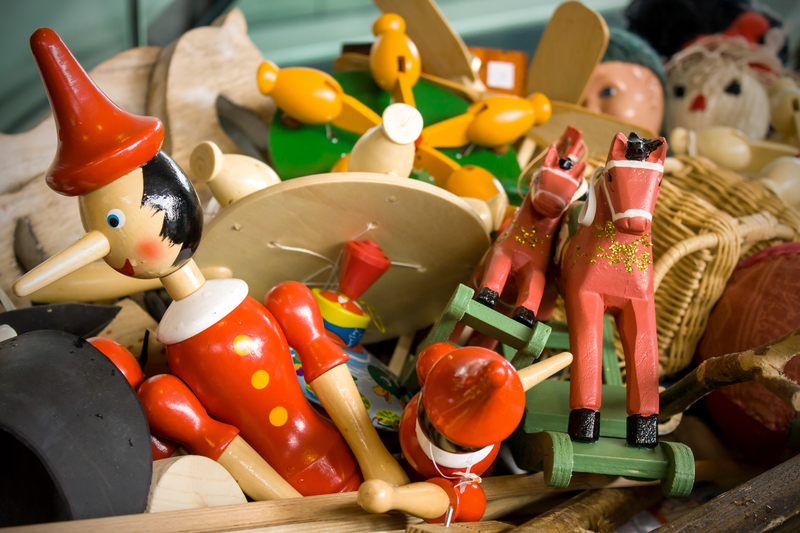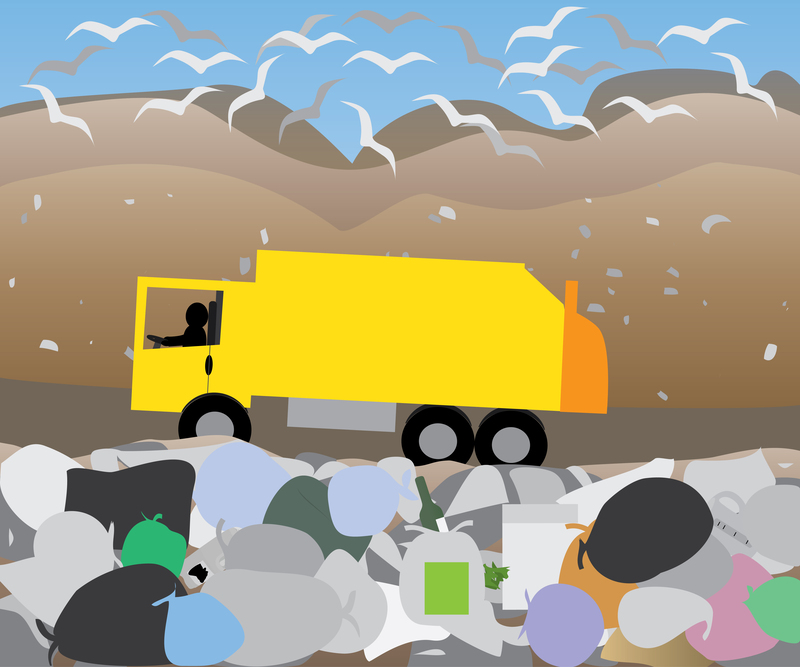The Minimalist Revolution: Discover a Life with Less
Are you overwhelmed by clutter, constant consumption, and the pressure to keep up with an ever-demanding world? You're not alone. An increasing number of people are joining the minimalist revolution, intentionally choosing a lifestyle centered around simplicity. This movement is empowering individuals worldwide to discover the peace, freedom, and fulfillment that comes from a life with less.
What Is Minimalism?
Minimalism is far more than just owning fewer possessions or living in a stark, white-walled space. At its core, minimalism is about intentional living--focusing on what truly matters by eliminating excess distraction, material items, and obligations.
- Physical minimalism: Reducing clutter and only keeping possessions that add real value.
- Mental minimalism: Letting go of overwhelming thoughts, comparisons, and distractions for a clearer, more focused mind.
- Emotional minimalism: Shedding toxic relationships and emotional baggage, investing your energy where it counts.
- Digital minimalism: Creating intentional boundaries with technology for a healthier online life.

The Roots of the Minimalist Movement
The minimalist revolution didn't appear overnight. While simplicity has deep cultural and spiritual roots--from Buddhist monks to ancient philosophers--its modern resurgence can be traced to a reaction against rampant consumerism, social media overwhelm, and the environmental impacts of overconsumption.
Books like Minimalism: Live a Meaningful Life by The Minimalists, Marie Kondo's The Life-Changing Magic of Tidying Up, and documentaries such as Minimalism: A Documentary About the Important Things have helped bring the message mainstream. People all over the world are discovering that a life with less can actually mean more freedom, happiness, and purpose.
Why Choose a Minimalist Lifestyle?
There are numerous benefits to embracing a minimalist life. Here's why minimalism's popularity continues to grow:
- Reduced stress: Less clutter in your environment and mind leads to lowered anxiety and greater clarity.
- More time: Ownership comes with maintenance and obligations. Less stuff = more time for what matters.
- Financial freedom: Fewer purchases mean less debt, bigger savings, and more choices in life.
- Environmental impact: Consuming and wasting less reduces your ecological footprint.
- Enhanced happiness and gratitude: Minimalists often report greater satisfaction and appreciation for what they already have.
How to Start the Minimalist Revolution in Your Life
Ready to join the movement toward living with less? Here are practical strategies to help you begin your own minimalist journey and fully embrace simplicity:
1. Define Your "Why"
Start by reflecting on why you want to pursue a minimalist lifestyle. Are you seeking peace, more time with family, financial security, or greater creativity? Understanding your motivations will keep you focused when the process feels tough.
2. Declutter Physical Possessions
One of the first steps in the minimalist revolution is to declutter your home, your workspace, and your car. Use these guidelines:
- The 90/90 Rule: Have you used it in the last 90 days? Will you use it in the next 90 days?
- Value Test: Does this item truly add value, joy, or utility to your life?
- One Room at a Time: Avoid overwhelm by decluttering in small, manageable zones.
Letting go doesn't mean going without. It means making space for what really matters.
3. Minimize Your Commitments
Minimalism isn't limited to stuff. It extends to your schedule and obligations.
- Audit your calendar. Is each activity truly meaningful?
- Practice saying "no" without guilt.
- Focus on commitments that align with your values.
4. Practice Digital Minimalism
With our lives increasingly lived online, digital minimalism is crucial. Here's how:
- Unsubscribe from unhelpful emails and notifications.
- Edit your social media connections--quality over quantity.
- Set boundaries on screen time; try a digital detox regularly.
5. Cultivate Mindful Consumption
Think before you buy. Ask yourself: Do I need this item, or is this an impulse? Consider supporting sustainable brands, buying secondhand, or borrowing instead of buying when possible.
6. Focus on Experiences Over Things
Study after study shows that experiences bring more long-term happiness than material goods. Invest your time and money in relationships, travel, learning, and adventure rather than shopping for more stuff.
The Transformative Power of a Minimalist Life
Embracing the minimalist revolution isn't about deprivation--it's about liberation. Here's what a life with less can bring you:
- Greater self-awareness: Understanding what is truly essential helps clarify your values.
- Stronger relationships: Freeing up time and energy makes space for deep human connection.
- Improved mental health: Simpler environments reduce decision fatigue and anxiety.
- Creative freedom: With less mental clutter, creativity and inspiration flourish.
- Environmental stewardship: Minimalists are conscious, responsible consumers making a positive impact.
Minimalist Variations: What Kind of Minimalism Suits You?
The beauty of the minimalist lifestyle is its flexibility. There's no "one-size-fits-all" solution. Consider these popular approaches:
- Essentialism: Relentlessly prioritize only what is most essential to your goals and values.
- Intentional Living: Make all decisions--purchases, relationships, work--with purpose.
- Nomadic Minimalism: Embrace life on the road, living from a backpack or suitcase.
- Eco-Minimalism: Focus on reducing environmental impact above all else.
- Frugal Minimalism: Prioritize financial independence and frugal living.
Minimalism Myths & Misconceptions
- Myth: "You have to throw everything away."
Truth: Minimalism is about finding your level of "enough", not deprivation. - Myth: "It's only for singles or the wealthy."
Truth: Families, couples, and people in all financial situations can benefit. - Myth: "You must live in a tiny house."
Truth: Minimalist principles can be applied regardless of where you live--it's about intentional space use. - Myth: "Minimalism means no style or comfort."
Truth: Many people discover a unique, satisfying style that reflects their genuine taste.
Minimalist Revolution: Tips for Staying on Track
- Regularly reassess: Needs and life circumstances change. Revisit your possessions and commitments often.
- Practice gratitude: Acknowledge the sufficiency and abundance in what you have.
- Connect with a community: Minimalism can feel countercultural. Find others on the path for support and inspiration.
- Be patient: The journey to a minimalist lifestyle is ongoing--give yourself grace.
- Celebrate progress: Every small change counts. Honor your efforts toward living with less.
Minimalism and the Environment: A Symbiotic Relationship
Did you know the minimalist lifestyle benefits the planet? By consuming less, you help reduce waste, cut pollution, and conserve precious resources. Minimalists tend to:
- Buy higher-quality, longer-lasting goods.
- Support local and sustainable businesses.
- Reduce single-use plastics and packaging.
- Upcycle, repair, and recycle.
Choosing a life of simplicity isn't just good for you--it's an act of stewardship for our shared world.
Inspiring Stories: Real People, Real Transformation
Meet Jennifer, a former shopaholic who found freedom in minimalism: "I used to spend weekends at the mall. Now, I explore parks with my kids. My home is calmer, my wallet is fuller, and I have energy for the moments that matter."
Mark and Lisa downsized to a tiny home: "We realized we were working to afford a mortgage on space we never used. Now, our life feels open and adventurous--we travel, volunteer, and have time to focus on our passions."
Their stories--and countless others--prove that the minimalist revolution can transform lives in unexpected, joyful ways.

The Future of the Minimalist Revolution
Minimalism is more than a trend; it's a growing movement with the potential to reshape how societies define success, happiness, and sustainability. As more people seek contentment and meaning over accumulation, the principles of simplicity, intentionality, and environmental care are finding a lasting home in the cultural conversation.
Practical Resources to Begin Your Minimalist Journey
- Podcasts: "The Minimalists Podcast", "The Slow Home Podcast"
- Books: Essentialism by Greg McKeown, Goodbye, Things by Fumio Sasaki
- Blogs: Becoming Minimalist, Zen Habits
- Documentaries: Minimalism (Netflix), Tidying Up with Marie Kondo
Ready to Embrace a Life with Less?
The minimalist revolution begins with a single step. Whether you're decluttering your closet or reimagining your priorities, know that every bit counts. The promise of a life with less is not about sacrifice--it's about reclaiming space, time, mental clarity, and joy for what truly matters most.
What could you gain by letting go? Begin your own minimalist journey today and discover the profound freedom that comes from living with less.